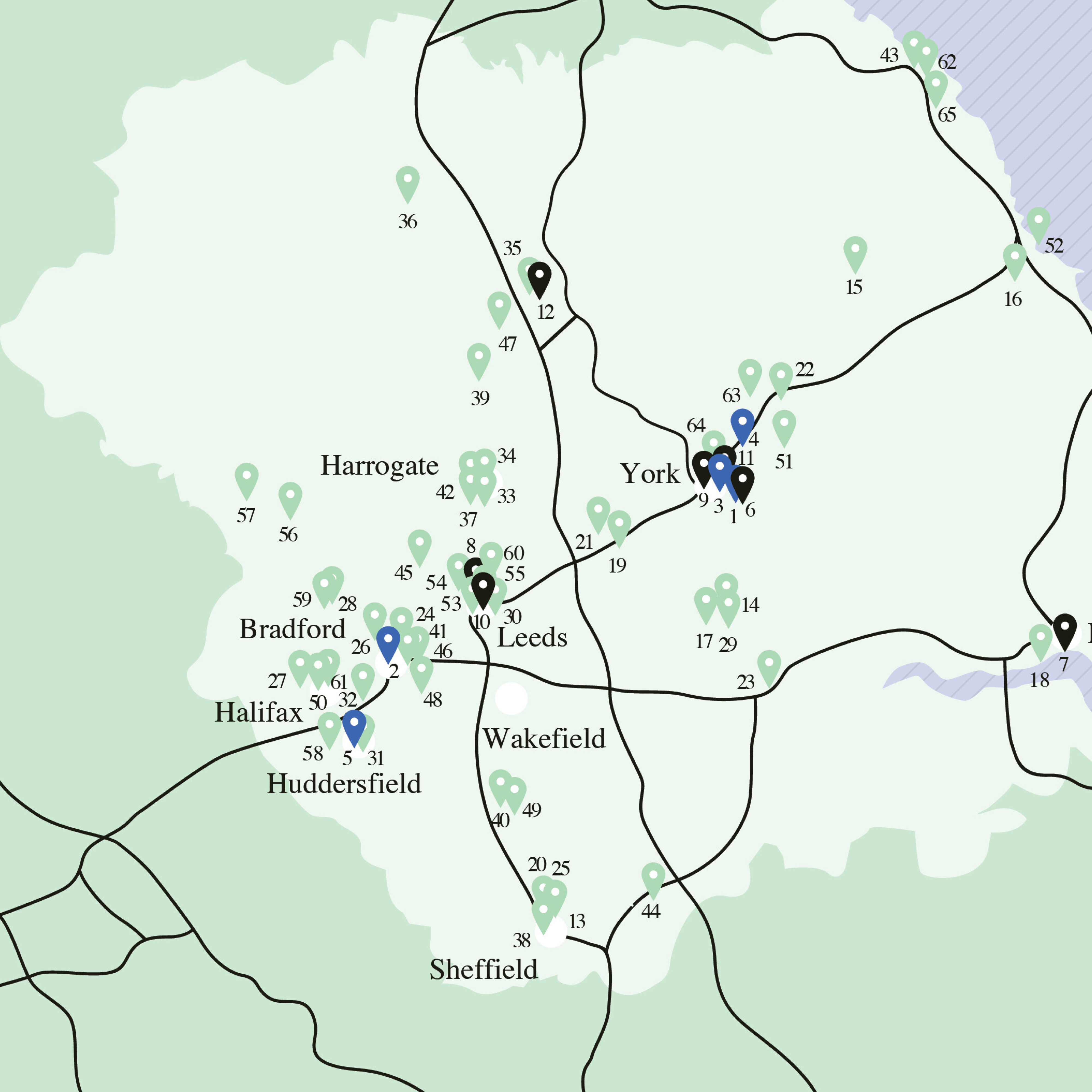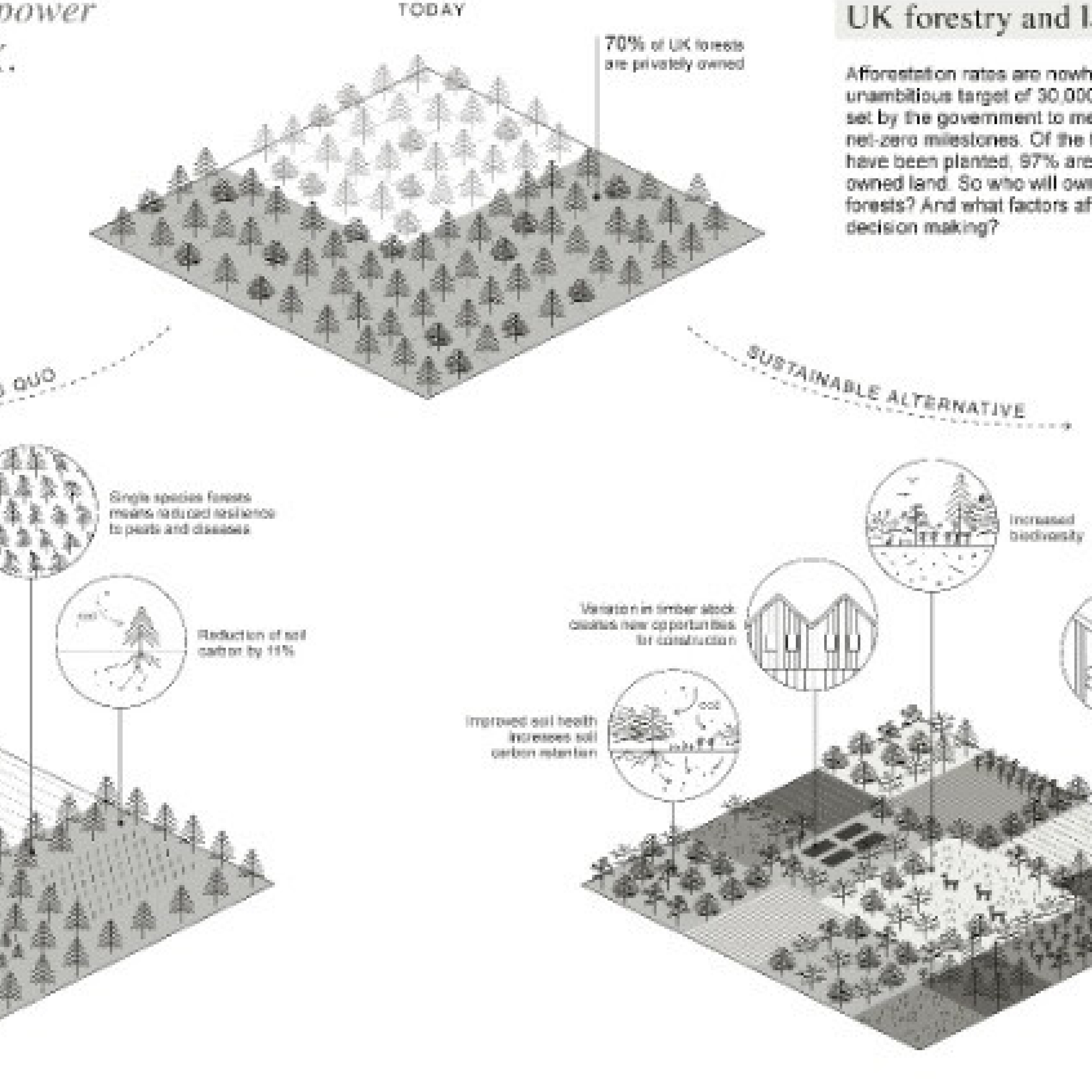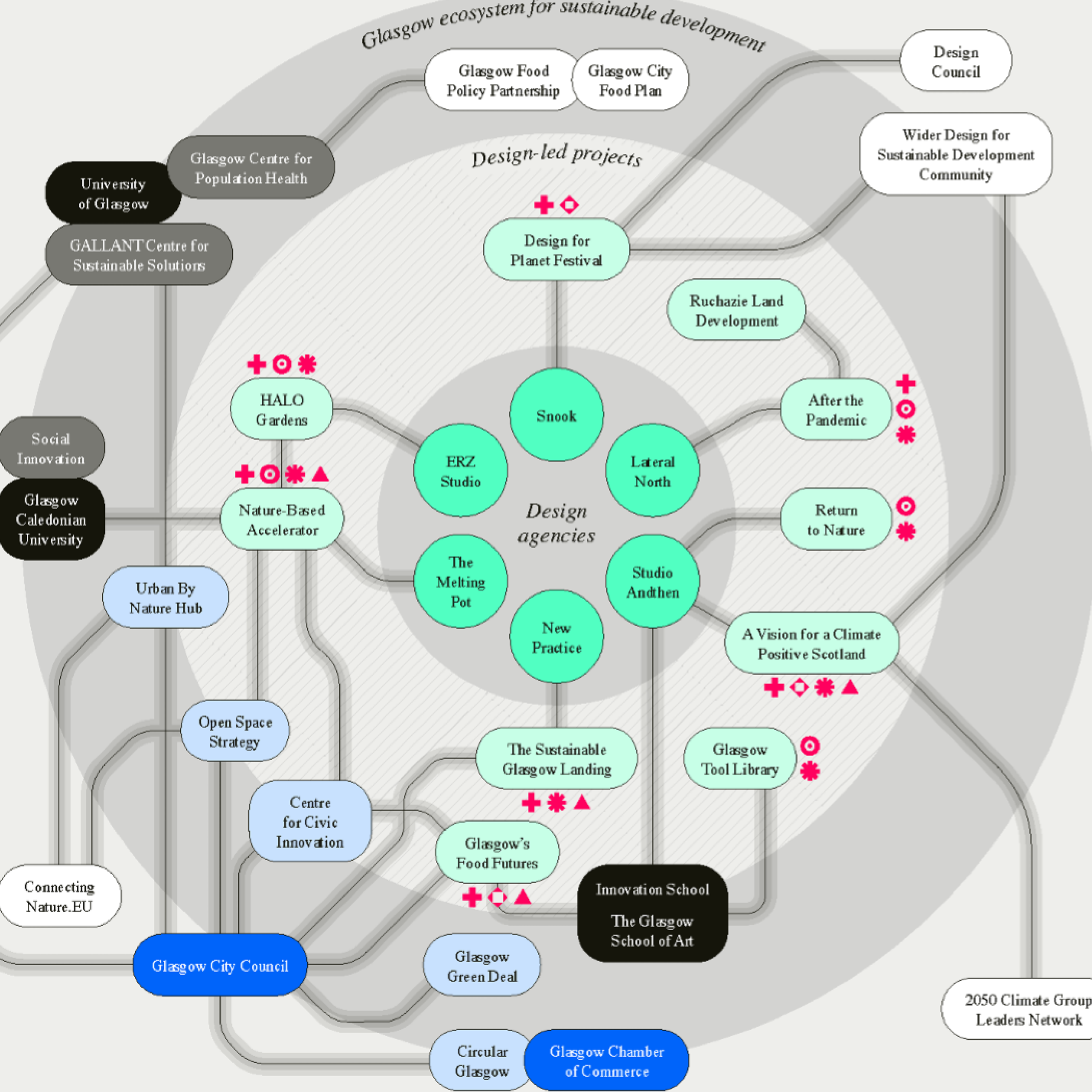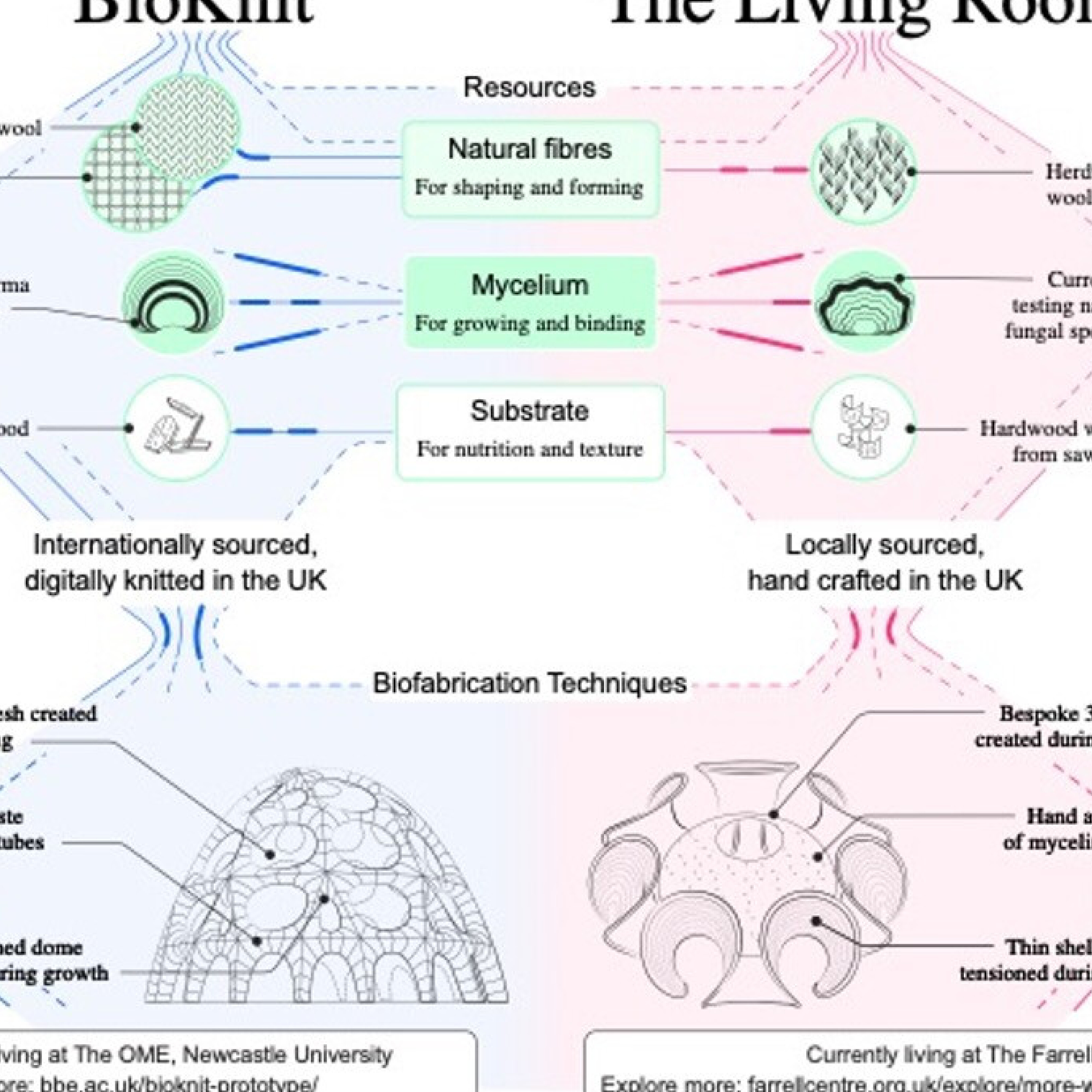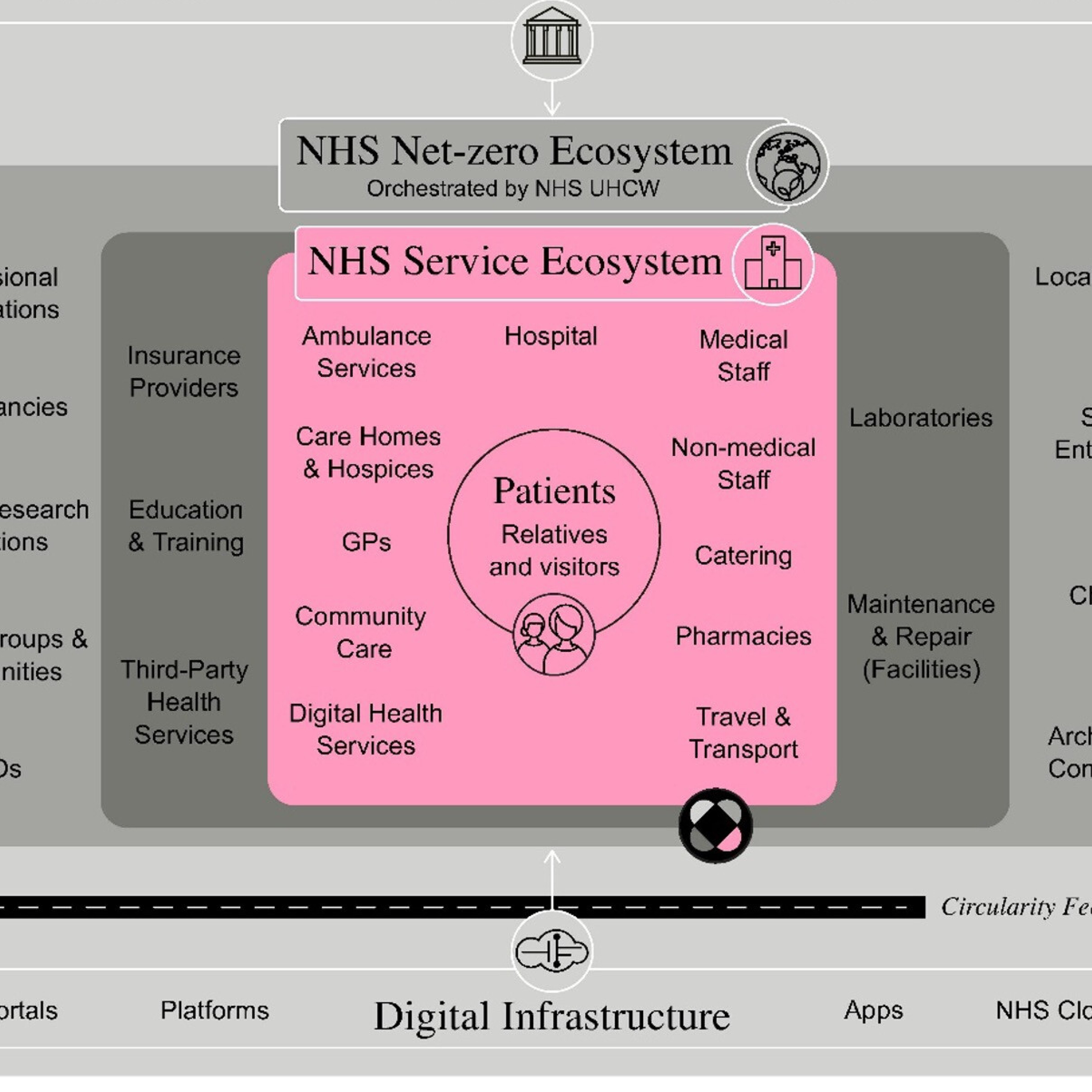The Design Ecosystem Fellowships are Future Observatory-funded awards for five researchers to map transformative design ecosystems in the UK.
The aim of the scheme is to highlight the strengths and weaknesses of production systems that support environmental sustainability, circular economies and waste reduction – a process that is key to achieving UK and global net zero targets.
Working on and from different regions across the UK, the five ecosystem fellows are identifying and analysing clusters of design and manufacturing across different industries, including textiles, healthcare and construction.
The Fellows were selected via open call in May 2022. The research period ran until February 2023, at which point their findings were published through a series of digital dashboards, built in collaboration with Beyond Words Studio.
